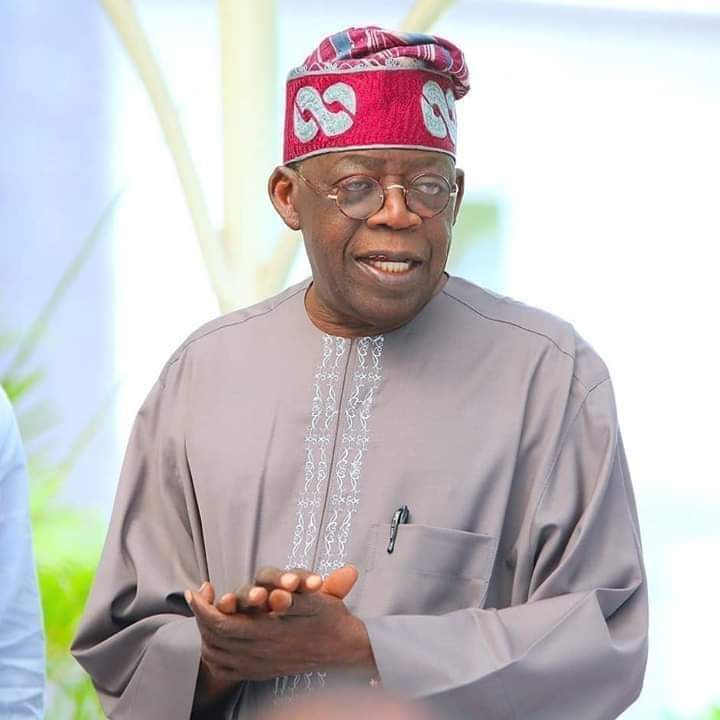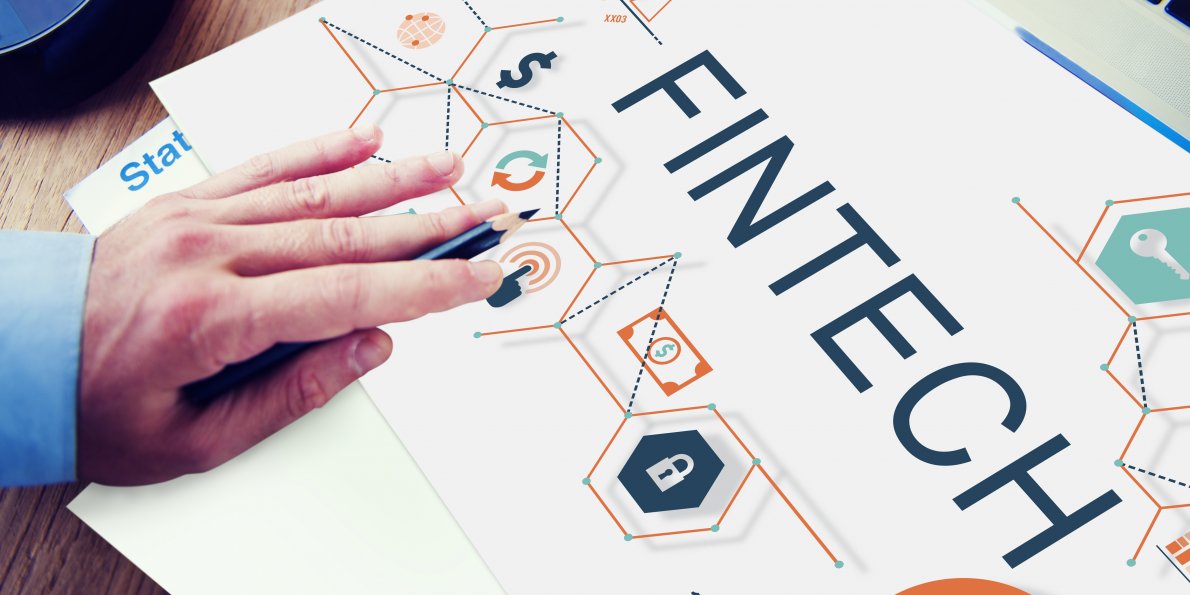Technology
Top 10 Players in Nigerian Fintech Space

By Adedapo Adesanya
The Nigerian financial technology space, like the sky, is wide enough to accommodate many players as the ways of doing financial transactions have been disrupted by digital innovations.
Contrary to what many might believe, the Nigerian government saw the possibility of this and in 2007, the Central Bank of Nigeria (CBN) launched the Payment Systems Vision 2020 (PSV 2020). This singular vision from the apex bank can be viewed as the catalyst that spurred the need for fintech companies to start multiplying over the years.
This CBN’s activity of 2007 can be considered as the birth of another era. The PSV 2020 was the first time the CBN set forward a reasonable policy for a future cashless society.
Prior to this, there were technology companies in existence but then, they were not able to sit at the table with traditional banks, who had the largest share of the buffet. But within the space of 15 years, rapid growth has changed the narrative.
Now, the fintech space in Nigeria is very competitive as there are countless numbers of fintech startups/companies competing for market share. This means even the traditional banks are being forced to innovate to guarantee their survival amidst the spread of fintech startups or digital banks.
As at the past decade, the fintech industry was somewhat a $20 billion market but the estimated size as at now is $128 billion and this is expected to rapidly expand with an annual average of 24 per cent and could top $310 million in 2022.
In Nigeria, there are an estimated 250 fintech companies with their skin in the game, all jousting for offer services from agriculture technology to savings and investments to crowdfunding to mobile payments to cryptocurrencies.
The diversification of these offerings is making it possible to align with places where traditional banks may not be located and are pushing to achieve the CBN’s goal of financial inclusion. The CBN has said that Nigeria will attain 95 per cent financial inclusion by 2024 and one cannot but wonder the role which fintechs will play to ensure this.
Business Post has streamlined the long list of players to 10 game-changers who are driving digital transactions and offering solutions that will not only close the gap in banking but are revolutionising how Nigerians pay for services, save and borrow money, make international payments, and even improve financial relationships among companies and even countries.
Interswitch
Interswitch is one of the early players. It burst into the scene in 2002 and was founded by Mitchell Elegbe as a transaction switching and electronic payments processing company. Today, Interswitch’s technology processes over 500 million transactions a month while its Verve payment card is the largest domestic debit card scheme in the country and has expanded outside of Africa.
Interswitch created the first electronic switch whereby Nigerian financial institutions could communicate and thereby operate ATMs and point of sales operations. The company now provides much of the transaction systems for Nigeria’s online banking system.
In 2019, Interswitch confirmed a $1 billion evaluation after Visa, an American multinational financial services corporation invested $200 million for 20 per cent of its stake.
FlutterWave
As an umbrella fintech, Flutterwave founded by Iyin Aboyeji in 2014, completes payment services from more than 68 online payment gateways in Nigeria. It allows clients to tap into its application programming interface (API) and work with Flutterwave developers to customize payments applications.
The company majorly offers business to business (B2B) payments services for companies operating in Africa to pay other companies on the continent and abroad. Some of its customers include Uber, Booking.com and Jumia.
In 2019, Flutterwave processed 107 million transactions worth $5.4 billion, according to data on its website.
Paga
Founded by Tayo Oviosu and Jay Alabraba, the mobile payment company enables people to digitally send and receive money and creating simple financial access for everyone. In Nigeria, Paga has over 9 million customers and 17,000 agents.
It was initially launched in Nigeria to profit from the buildup of cash money in the financial industry and to execute financial services for all residents in Africa. However, it was one of the early birds to tap into mobile banking with customers able to access it multitudes of service offerings by dialling *242#.
PiggyVest
PiggyVest is an online savings platform that empowers savers to put away funds that they would prefer not to withdraw effectively. Founded by Somto Ifezue, Odunayo Eweniyi, and Joshua Chibueze, the fintech as at 2019 has over one million users and has saved up to $80 million.
PiggyVest doesn’t just allow users to save, it also allows them to invest their money while offering a return within a period. It offers between 10 – 15.5 per cent on savings. Investments can get up to 22 per cent returns in one year.
One key feature that has found home with users is the SafeLock feature which was modelled after treasury bill transactions, where a buyer is paid a fixed percentage of their capital depending on how long you permit the government to hold your money.
Business Post understands that the average amount in a Piggyvest SafeLock is about N500,000 and is typically locked for between 4 and 6 months.
Paystack
Founded by Ezra Olubi and Shola Akinlade, Paystack offers payment solutions to businesses in Nigeria. They are one of the leading online payment gateways in the county. The fintech company, which was founded in 2015, has quickly become one of the favourite payment solutions for tech startups in the country.
Its last round of funding came in August 2018 when they raised $10.2 million in Series A funding led by Stripe and had previously recorded four previous fundings in seeds and non-equity assurance.
eTranzact
Also, one of the early players, it was launched in 2003 as a multi-application, multi-network and multi-channel electronic payment platform that supports every significant network; including AMEX, VISA and MasterCard.
eTranzact is one of the Fintech companies in Nigeria designed as a credible option in contrast to all transaction which is either cash or cheque based. The platform capacity is with the end goal that any arrangement driven by customer payment can be automated on the platform.
eTranzact as a Switch processes payment requests from various channels – Web, ATM, POS, mobile-utilizing automated procedures.
The switching platform validates transaction requests subsequent to running security checks on the payment cards.
Nigerians use it to pay at cinemas, event shows, and for other payments. The company has tech solutions for players in various sectors of the economy including banking, education, the financial market, travel and transportation, telecommunications, and public administrations.
Paylater (Now known as Carbon)
Carbon is a mobile-only digital bank founded by Chijioke and Ngozi Dozie. It provides innovative financial services to the financially underserved. It was formerly known as Paylater. Carbon offers bill payments, fund transfer, and savings products, in addition to loans.
They offer instant loans to Nigerians without collateral. With a very competitive interest rate, they have dominated the fintech sector. The app is used by over 1 million people to secure loans and other financial solutions.
In 2019, they secured $5m debt investment from New York and Nairobi-based debt platform Lendable. Mostly known for giving instant loan, they have since diversified into many areas such as mobile top-ups, investment and digital banking.
Business Post reported earlier this year that as at last year, the fintech had disbursed over 975,000 loans. This boosted its revenue as it recorded over 25,000 loans top-up, bring about a N6.3 billion in revenue.
Remita
Remita made the cut because of its affiliations to small and medium scale enterprises, multinationals, state governments, government agencies, NGOs, schools and educational institutions alongside Individuals to receive and make payments electronically.
Developed by SystemSpecs, Remita processes over two million salaries per month for Nigerian companies. In 2016, Remita processed N1.36 trillion for the Nigerian government when it consolidated all federal ministry and agency accounts under the Treasury Single Account (TSA) scheme.
The company started out as a developer and reseller of human resources and accounting tools. It eventually developed HumanManager, an HR and payroll system for corporate environments. Its payroll system has since expanded to Ghana, Benin Republic, Equatorial Guinea, Sierra Leone, Zimbabwe and South Sudan.
Kuda Bank
Kuda is the first digital-only bank in Nigeria with a standalone license. Unlike others, it is not fintech that has a mobile wallet or a mobile app affiliated with an existing bank, it is a bank on its own.
Based in Lagos and London, following its banking license from the Central Bank of Nigeria (CBN), this gives it a status different from other fintech startups.
Part of its offerings includes: checking accounts with no monthly fees, a free debit card, savings and peer-to-peer (P2P) payments options on its platform.
Customers can open an account within five minutes and will get an account number and can request a physical debit card afterwards.
CowryWise
Considered the direct rival of PiggyVest, it was founded by Edward Popoola and Razak Ahmed. The fintech allows users to save for long-term goals including home, vacation, family, emergency, education, business, retirement, among others.
A user can invest in Nigeria’s money market via mutual funds. The platforms list funds like Afrivest Plutus Fund, United Capital Money Market Fund, Meristem Money Market Fund and more. Users can access Dollar mutual funds.
Cowrywise also offers between 10 – 15 per cent on savings while Mutual funds on its platform can get up to 20 per cent per annum.
Technology
Leticia Otomewo Becomes Secure Electronic Technology’s Acting Secretary

By Aduragbemi Omiyale
One of the players in the Nigerian gaming industry, Secure Electronic Technology (SET) Plc, has appointed Ms Leticia Otomewo as its acting secretary.
This followed the expiration of the company’s service contract with the former occupier of the seat, Ms Irene Attoe, on January 31, 2026.
A statement to the Nigerian Exchange (NGX) Limited on Thursday said Ms Otomewo would remain the organisation’s scribe in an acting capacity, pending the ratification and appointment of a substantive company secretary at the next board meeting.
She was described in the notice signed by the Managing Director of the firm, Mr Oyeyemi Olusoji, as “a results-driven executive with 22 years of experience in driving business growth, leading high-performing teams, and delivering innovative solutions.”
The acting secretary is also said to be “a collaborative leader with a passion for mentoring and developing talent.”
“The company assures the investing public that all Company Secretariat responsibilities and regulatory obligations will continue to be discharged in full compliance with the Companies and Allied Matters Act, applicable regulations, and the Nigerian Exchange Limited Listing Rules,” the disclosure assured.
Meanwhile, the board thanked Ms Attoe “for professionalism and contributions to the Company during the period of her engagement and wishes her well in her future endeavours.”
Technology
Russia Blocks WhatsApp Messaging Service

By Adedapo Adesanya
The Russian government on Thursday confirmed it has blocked the WhatsApp messaging service, as it moves to further control information flow in the country.
It urged Russians to use a new state-backed platform called Max instead of the Meta-owned service.
WhatsApp issued a statement earlier saying Russia had attempted to “fully block” its messaging service in the country to force people toward Max, which it described as a “surveillance app.”
“Today the Russian government attempted to fully block WhatsApp in an effort to drive people to a state-owned surveillance app,” WhatsApp posted on social media platform X.
“Trying to isolate over 100 million users from private and secure communication is a backwards step and can only lead to less safety for people in Russia,” it said, adding: “We continue to do everything we can to keep users connected.”
Russia’s latest move against social media platforms and messaging services like WhatsApp, Signal and Telegram comes amid a wider attempt to drive users toward domestic and more easily controlled and monitored services, such as Max.
Russia’s telecoms watchdog, Roskomnadzor, has accused messaging apps Telegram and WhatsApp of failing to comply with Russian legislation requiring companies to store Russian users’ data inside the country, and of failing to introduce measures to stop their platforms from being used for allegedly criminal or terrorist purposes.
It has used this as a basis for slowing down or blocking their operations, with restrictions coming into force since last year.
For Telegram, it may be next, but so far the Russian government has been admittedly slowing down its operations “due to the fact that the company isn’t complying with the requirements of Russian legislation.”
The chat service, founded by Russian developers but headquartered in Dubai, has been a principal target for Roskomnadzor’s scrutiny and increasing restrictions, with users reporting sluggish performance on the app since January.
Technology
Nigerian AI Startup Decide Ranks Fourth Globally for Spreadsheet Accuracy

By Adedapo Adesanya
Nigerian startup, Decide, has emerged as the fourth most accurate Artificial Intelligence (AI) agent for spreadsheet tasks globally, according to results from SpreadsheetBench, a widely referenced benchmark for evaluating AI performance on real-world spreadsheet problems.
According to the founder, Mr Abiodun Adetona, the ranking places Decide alongside well-funded global AI startups, including Microsoft, OpenAI, and Anthropic.
Mr Adetona, an ex-Flutterwave developer, also revealed that Decide now has over 3,000 users, including some who are paying customers, a signal to the ability of the startup to scale in the near future.
SpreadsheetBench is a comprehensive evaluation framework designed to push Large Language Models (LLMs) to their limits in understanding and manipulating spreadsheet data. While many benchmarks focus on simple table QA, SpreadsheetBench treats a spreadsheet as a complex ecosystem involving spatial layouts, formulas, and multi-step reasoning. So far, only three agents rank higher than Decide, namely Nobie Agent, Shortcut.ai, and Qingqiu Agent.
Mr Adetona said SpreadsheetBench measures how well AI agents can handle practical spreadsheet tasks such as writing formulas, cleaning messy data, working across multiple sheets, and reasoning through complex Excel workflows. Decide recorded an 82.5% accuracy score, solving 330 out of 400 verified tasks.
“The result reflects sustained investment in applied research, product iteration, and learning from real-world spreadsheet workloads across a wide range of use cases,” Mr Adetona told Business Post.
For Mr Adetona, who built Decide out of frustration with how much time professionals spend manually cleaning data, debugging formulas, and moving between sheets, “This milestone highlights how focused engineering and domain-specific AI development can deliver frontier-level performance outside of large research organisations. By concentrating on practical business data problems and building systems grounded in real user environments, we believe smaller teams can contribute meaningfully to advancing applied AI.”
“For Decide, this is a foundation for continued progress in intelligent spreadsheet and analytics automation,” he added.
-

 Feature/OPED6 years ago
Feature/OPED6 years agoDavos was Different this year
-
Travel/Tourism10 years ago
Lagos Seals Western Lodge Hotel In Ikorodu
-

 Showbiz3 years ago
Showbiz3 years agoEstranged Lover Releases Videos of Empress Njamah Bathing
-

 Banking8 years ago
Banking8 years agoSort Codes of GTBank Branches in Nigeria
-

 Economy3 years ago
Economy3 years agoSubsidy Removal: CNG at N130 Per Litre Cheaper Than Petrol—IPMAN
-

 Banking3 years ago
Banking3 years agoSort Codes of UBA Branches in Nigeria
-

 Banking3 years ago
Banking3 years agoFirst Bank Announces Planned Downtime
-

 Sports3 years ago
Sports3 years agoHighest Paid Nigerian Footballer – How Much Do Nigerian Footballers Earn













